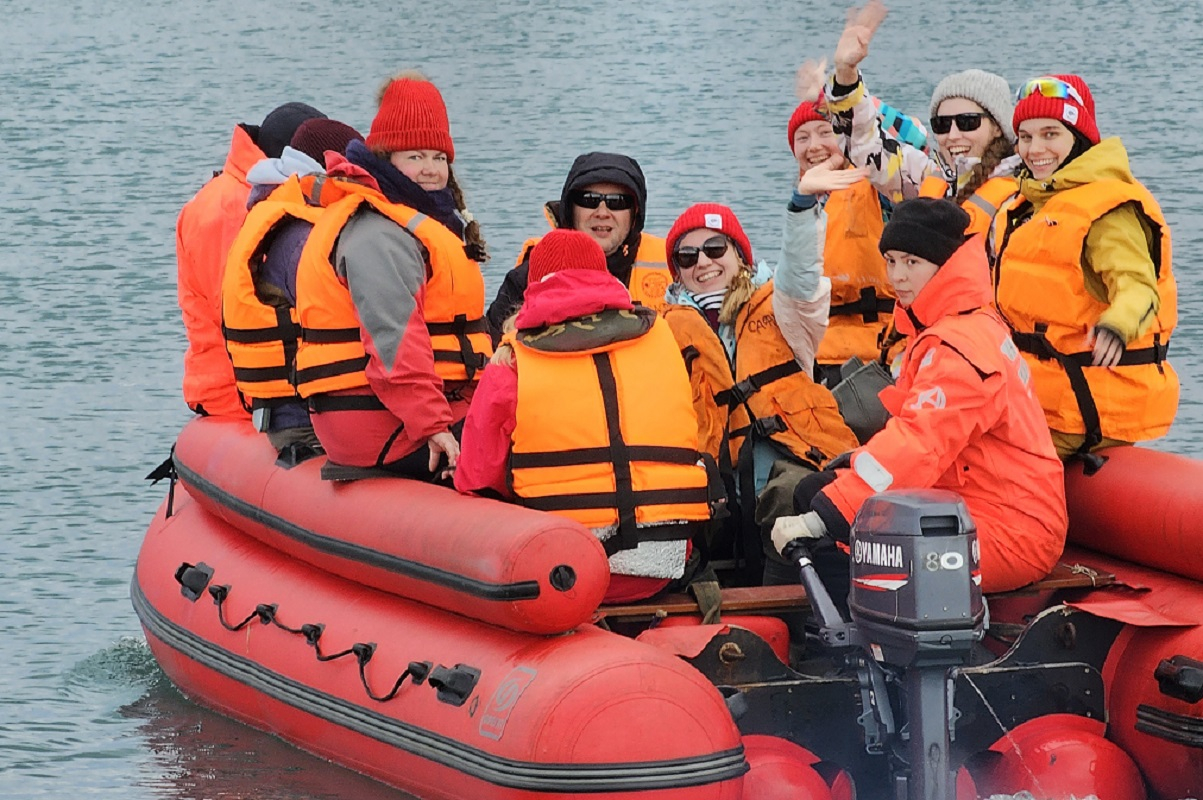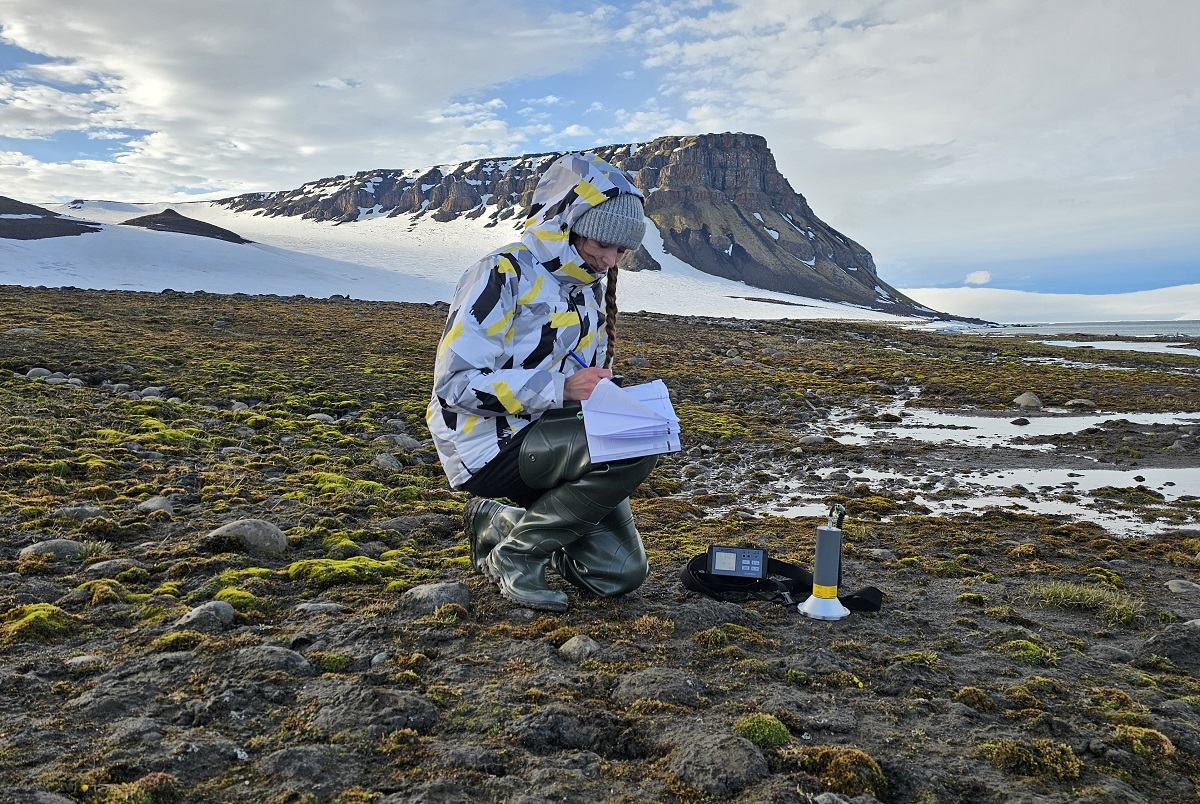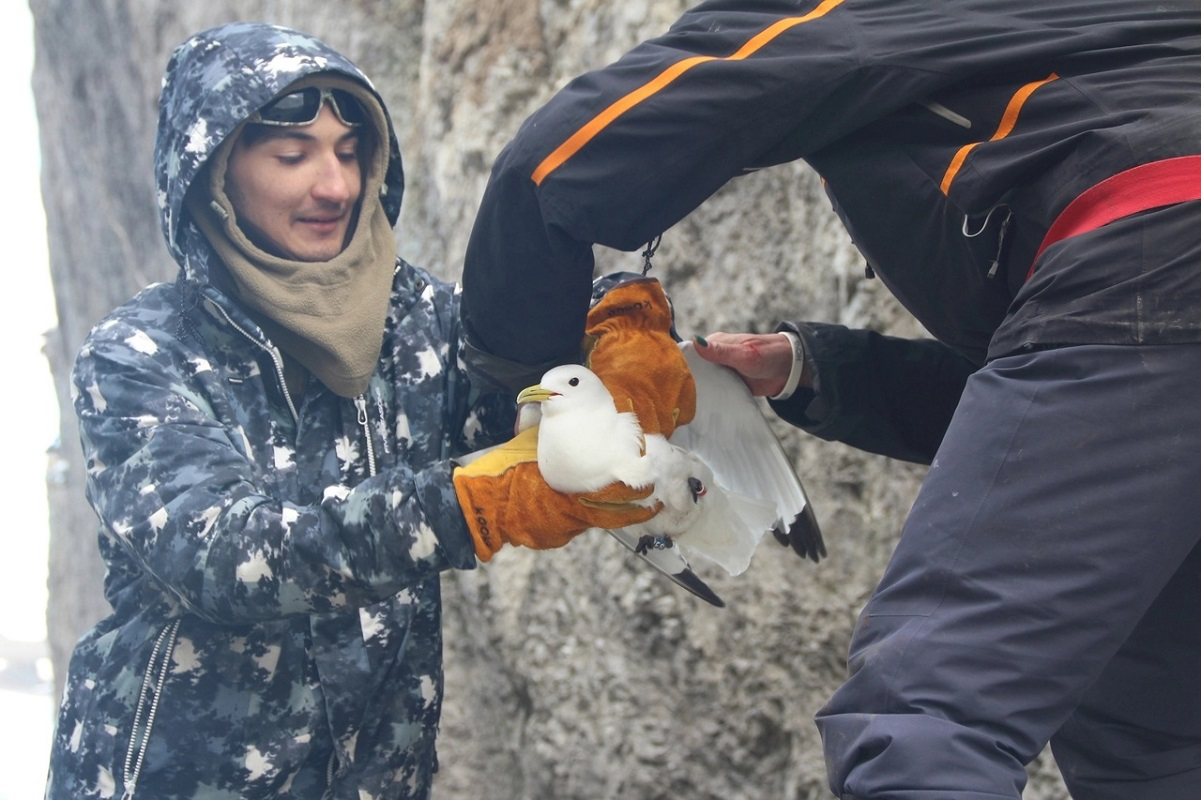Students from St Petersburg University participate in the Arctic Floating University 2024 expedition
Young geoecologists and oceanographers from St Petersburg University have taken part in the Arctic Floating University 2024 expedition.
Egor Dudorkin, a doctoral student in the Department of Oceanology at St Petersburg University; Angelina Lipkina and Daria Khloptsova, master’s students in the Department of Geoecology at the University; and Georgii Buguk, a bachelor’s student in the Department of Oceanology at the University, spent 21 days on board the research vessel Professor Molchanov, which travelled the route Arkhangelsk — White Sea and Barents Sea — Kolguyev Island — Novaya Zemlya — Franz Josef Land — Arkhangelsk.
During the expedition, the scientists determined the level of contamination of Arctic areas and the composition of pollutants, conducted on‑the‑way observations of seabirds and mammals, and monitored changes in zoogenic microbial communities. A number of studies were aimed at identifying population and individual risks to the health and well‑being of local populations. A separate area of research was the study of the adaptation of the voyagers themselves to working on an Arctic expedition.
Students from St Petersburg University carried out work on oceanographical sections and during landings on Kolguyev Island and the Franz Josef Land and Novaya Zemlya archipelagos.
‘During our research into the peculiarities of soil function and formation in the geosystems of the coastal Arctic tundra and island heaths of the Western Russian Arctic, we made 12 sections and took 20 kg of soil samples for further analysis. We were also able to determine the temperature of the upper soil horizon and the depth of seasonal thawing of soils, describe the composition of the vegetation cover, and determine the projective cover of the ground cover. As part of the field work, we carried out ground‑penetrating radar profiling along transects with soil sections,’ said Daria Khloptsova.
As part of a comprehensive radioecological investigation of the Barents Sea ecosystems, the young scientists sampled 270 litres of seawater and prepared 150 gamma survey stations for further analysis of radionuclide content. On the island territories, they examined soil samples, measured alpha particle fluxes and determined radon‑222 flux densities at control points.
During oceanographical sections, we managed to collect 134 chlorophyll samples and measured photosynthetically active solar radiation fluxes in the water column. Continuous observations of cloud cover and actinometrical parameters were made along the entire route. Additionally, snowfield profiles were placed on the islands, which can potentially be used as indicators of climate change over short time intervals.
Egor Dudorkin, a doctoral student in the Department of Oceanology at St Petersburg University
The integrated nature of this expedition provided a unique opportunity for the young scientists to engage in research outside their core areas of expertise. Georgii Buguk, for example, participated in ornithological observations and bird counts along the way.
‘These observations were the largest in the history of the Arctic Floating University, both in terms of time and space,’ said Georgii Buguk, a bachelor’s student at St Petersburg University.
The work of the early‑career researchers did not end with the expedition. ‘Now, we are processing the data arrays and analysing the samples in the laboratories in order to present the findings of the expedition at conferences and in scholarly papers,’ said Angelina Lipkina.
The Arctic Floating University is a project of Lomonosov Northern (Arctic) Federal University and the Northern Administration for Hydrometeorology and Environmental Monitoring.
The partners of the Arctic Floating University are the following: the Ministry of Science and Higher Education of the Russian Federation; the Government of the Arkhangelsk Region; the Russian Geographical Society; VTB Bank, MMC Norilsk Nickel; the Russian Federal Service for Hydrometeorology and Environmental Monitoring (Roshydromet) (the Federal State Budgetary Institution ‘The Northern Administration for Hydrometeorology and Environmental Monitoring’); the Russian Arctic National Park; the Floating University Coordination Centre based at Moscow Institute of Physics and Technology (MIPT); and the Year‑round Youth Educational Centre ‘Science’.
The Floating University expeditions are carried out within the framework of the national project ‘Science and Universities’, implemented by the Russian Ministry of Science and Higher Education, and are part of the Science to Win initiative of the Decade of Science and Technology.
In 2024, 14 students from St Petersburg University were selected to participate in five expeditions of the All‑Russian scientific and educational programme ‘Floating University’ based at MIPT.
According to Vyacheslav Polovkov, co‑organiser of the Floating University Winter School at St Petersburg University and Director of the Advanced Engineering School of the University, participation in the expedition is the second stage of the full cycle of the Floating University programme. The first stage is participation in the Winter School, which takes place at various locations around the country.
‘The Floating University Winter School has already been held twice at St Petersburg University. In 2025, we plan to organise the Floating University Winter School again on the basis of the University. Additionally, we are currently developing a comprehensive research programme on Lake Ladoga, in which students who have successfully completed the Winter School will be able to participate,’ said Vyacheslav Polovkov.
According to Polina Lobanova, co‑organiser of the Floating University Winter School, Associate Professor in the Department of Oceanology at St Petersburg University, the main areas of the Floating University Winter School at the University are geophysical and hydrochemical research, as well as modelling in earth sciences.
‘Last year, we launched a new track ‘The role of the world ocean in the carbon cycle‘ and a special track for schoolchildren ’How we study the ocean". We are going to include all these tracks in the expedition programme on Lake Ladoga,’ Polina Lobanova added.




